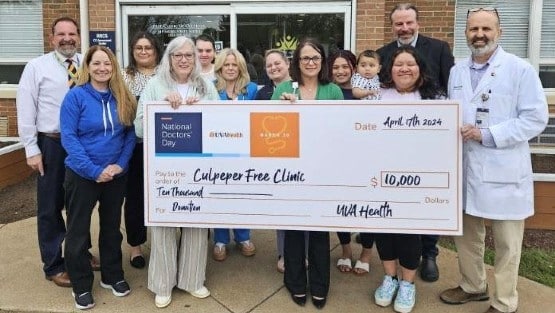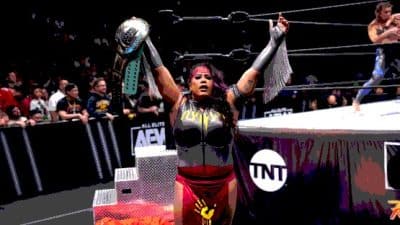A majority of Virginians oppose gay marriage. But does that mean that a majority will vote in November in favor of a constitutional amendment that would prohibit gay marriage?
“We obviously need to make sure that voters get the message that they need to read the whole thing before they vote,” said Claire Guthrie Gastanaga, the campaign manager for the Richmond-based Commonwealth Coalition, which is leading the effort to fight against the passage of the amendment that will be on the ballot in Virginia in the fall, citing poll numbers that indicate that support for the measure declines sharply when voters make themselves aware of the full text of the ballot question.
The poll that she cited, conducted in June by the Alexandria-based firm Fabrizio McLaughlin and Associates for The Commonwealth Coalition, registered support for the amendment among Virginians read the entire text of the amendment by pollsters at 45 percent – with 40 percent opposed to the amendment and 14 percent undecided.
These numbers stand in stark contrast to data from an independent Mason-Dixon poll released in July that pegged support for the amendment at 56 percent of Virginia residents and opposition at 38 percent – with 6 percent undecided.
One possible reason for the discrepancy – Mason-Dixon pollsters read only the first paragraph of the amendment question, which asks voters if the Virginia Constitution should be amended to reflect that “only a union between one man and one woman may be a marriage valid in or recognized by this Commonwealth and its political subdivisions.”
Left out was paragraph two – “This Commonwealth and its political subdivisions shall not create or recognize a legal status for relationships of unmarried individuals that intends to approximate the design, qualities, significance, or effects of marriage. Nor shall this Commonwealth or its political subdivisions create or recognize another union, partnership, or other legal status to which is assigned the rights, benefits, obligations, qualities, or effects of marriage.”
“When I saw the Mason-Dixon poll, I was encouraged,” Gastanaga said. “I was encouraged for a lot of reasons – one because the Mason-Dixon poll, which only asked the first sentence, showed a significant increase in opposition to the amendment in the last year from our poll of a year ago, and no increase at all in the support of the overall concept of what the other side is trying to promote this amendment as.
“Mason-Dixon took the most negative way that this issue could be presented, went to the voters, and despite the fact that the other side has been working this for a year, their numbers didn’t go up at all, and might have gone down slightly, if you look at the margin of error – and the no’s went up significantly. So I find the Mason-Dixon poll, even though it used the wrong question, amazingly encouraging,” Gastanaga told The Augusta Free Press.Christopher Newport University political-science professor Quentin Kidd, for his part, was “really surprised” at the numbers provided by Mason-Dixon.
“The reason for what we’re seeing here, I think, is in part due to the way those who oppose the amendment have been waging the campaign against it,” Kidd said. “I think they’ve done a really crafty job of laying down an argument that says, This amendment is going to do more than what it appears that it might do on the surface. It could redefine relationships that go beyond just the marriage relationship between two men or two women.
“I think that’s an effective argument – because it sort of takes the argument away from the realm of discussion that would cause the traditional Virginia social conservatives to kick in,” Kidd said. “If you don’t talk about the issue of do you support gays marrying each other, but you talk about the possibility that you couldn’t take care of your brother’s estate if he became disabled, then I think that causes people to pause and think. And I think this is why the numbers aren’t as high as I would have expected them to be six months ago.
“You’ve really got to chip away at the language of the amendment and avoid a frontal discussion about gay marriage – and I think that’s what they’ve done,” Kidd told the AFP.
One issue there is that amendment foes run the risk of avoiding the issue to the point of making themselves irrelevant as far as the larger discussion is concerned. Roanoke Democrat Sam Garrison thought The Commonwealth Coalition was straddling the line of irrelevancy a bit too long into the debate for his liking.
“I thought The Commonwealth Coalition was making a mistake by dwelling too much on the really remote possibilities of what might happen if this amendment were to pass – but I think they’ve moderated their stand since then,” said Garrison, a member of the Virginia Partisans Gay and Lesbian Democratic Club executive board who was instrumental in getting the Virginia Democratic Party to pass a resolution opposing the marriage amendment earlier this summer.
“I do think that for a long time The Commonwealth Coalition belabored the uncertainties that are created by this ambiguous language in terms of what impact the amendment might have on unmarried people owning property jointly and leaving property to someone in a will or deeding it in a real-estate deed and joint bank accounts and powers of attorney and things like that,” Garrison said.
“I’ve always been of the view that there’s really no evidence at all that the General Assembly intended by this amendment to prevent unmarried people from engaging in the same documents and instruments that unmarried people of any gender have for hundreds of years been able to make. It’s not really an incident of marriage for two people of the same sex or the opposite sex who happen to be siblings to own property jointly. It’s not an incident of marriage, per se, for someone to leave property to a person to whom they’re not married. I mean, it’s really quite common. It’s not really an incident of marriage for people to have joint bank accounts,” Garrison said.
“But even though I personally believe that the General Assembly did not intend to invalidate those traditional instruments and documents, and even though I do not think that our courts in Virginia are homophobic in the sense that they will be straining to find that the amendment does actually invalidate those traditional documents, the way that the legislature worded that second paragraph is sloppy enough and confusing enough that I think it is absolutely fair for The Commonwealth Coalition to say that one cannot be certain looking at this sloppy language that courts will not interpret it to invalidate instruments that unmarried people have for hundreds of years been able to enter into,” Garrison told the AFP.
That the sloppy language comes in the second paragraph of the amendment means that there is no guarantee that people will even ask themselves that question.
“And if I were advising those who support the amendment, I would go strong and hard on the frontal issue that we know Virginians wouldn’t support in massive numbers – and that is gay marriage,” Kidd said. “I would run ads on TV showing two men or two women getting married, I would link it to Massachusetts – all those emotional cues and emotional triggers that would cause the normal Virginian who is slightly conservative, slightly right-of-center, to react very negatively to.
“That’s how you would hit this issue – you just avoid having a technical debate about the language and how the courts might interpret this amendment in years to come. Avoid that discussion altogether and hit hard on the emotional issues and hit hard on the images that would cause Virginians to back up,” Kidd said.
And guess what supporters of the amendment plan to do?
“Our entire focus is on the issue that is actually on the ballot – and that is how we’re going to define marriage for future generations,” said Chris Freund, the policy director of the Richmond-based Family Foundation of Virginia, which is spearheading the Virginia 4 Marriage effort to pass the amendment.
“Opponents of the amendment don’t want to talk about that issue. They can’t talk about that issue – because they know that a majority of Virginians don’t support same-sex marriage. So they have to try to divert attention. They’ve done the same thing in other states that have passed the amendment – regardless of the language that’s on the ballot. And so really our response to that in general is that this is just deception, it isn’t true – and if people need to find more information about what the amendment is really going to do, they can simply read the Commonwealth of Virginia’s own explanation, supplied by the State Board of Elections, that says none of the things that are opponents basically are saying are true,” Freund told the AFP.
One rule of politics – that simplicity is an easier sell – could give amendment advocates the advantage in the end.
“We’re not really running a campaign of persuasion. We’re running a campaign of motivation. Because really, we don’t have to persuade people that marriage should be between one man and one woman – they already believe that,” Freund said.
“We really believe that people intuitively support this amendment – and once all the dust settles, that as long as those folks turn out to vote, we’ll be fine,” Freund said.
(Published 08-01-06)










